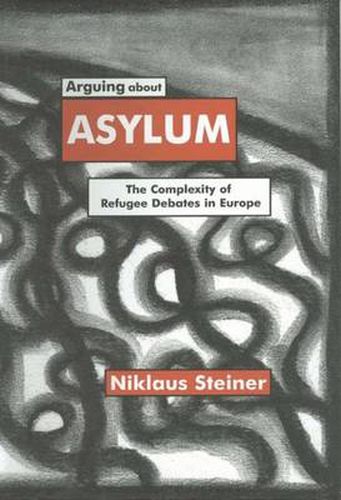Readings Newsletter
Become a Readings Member to make your shopping experience even easier.
Sign in or sign up for free!
You’re not far away from qualifying for FREE standard shipping within Australia
You’ve qualified for FREE standard shipping within Australia
The cart is loading…






This title is printed to order. This book may have been self-published. If so, we cannot guarantee the quality of the content. In the main most books will have gone through the editing process however some may not. We therefore suggest that you be aware of this before ordering this book. If in doubt check either the author or publisher’s details as we are unable to accept any returns unless they are faulty. Please contact us if you have any questions.
In addressing the asylum controversy in Europe today, much of the literature assumes that asylum policies result from the struggle between national interest arguing to tighten asylum and humanitarianism arguing to loosen it. This book challenges this simple tug-of-war image by examining asylum in Germany, Switzerland, and Britain from the late 1970s to the mid 1990s. The findings reveal the complex and often counter-intuitive roles national interest, international norms, and morality play in shaping asylum. It forces us to reconsider how we think about asylum and to explore alternatives to conventional assumptions.
$9.00 standard shipping within Australia
FREE standard shipping within Australia for orders over $100.00
Express & International shipping calculated at checkout
This title is printed to order. This book may have been self-published. If so, we cannot guarantee the quality of the content. In the main most books will have gone through the editing process however some may not. We therefore suggest that you be aware of this before ordering this book. If in doubt check either the author or publisher’s details as we are unable to accept any returns unless they are faulty. Please contact us if you have any questions.
In addressing the asylum controversy in Europe today, much of the literature assumes that asylum policies result from the struggle between national interest arguing to tighten asylum and humanitarianism arguing to loosen it. This book challenges this simple tug-of-war image by examining asylum in Germany, Switzerland, and Britain from the late 1970s to the mid 1990s. The findings reveal the complex and often counter-intuitive roles national interest, international norms, and morality play in shaping asylum. It forces us to reconsider how we think about asylum and to explore alternatives to conventional assumptions.